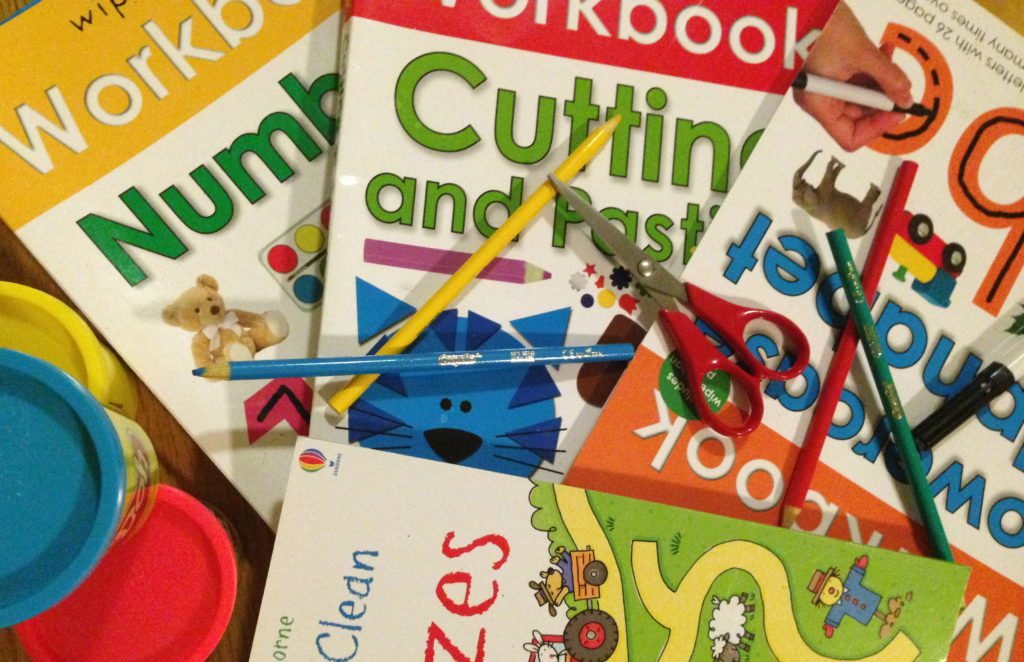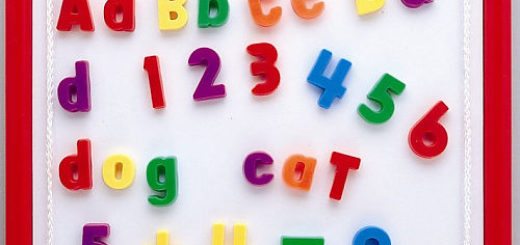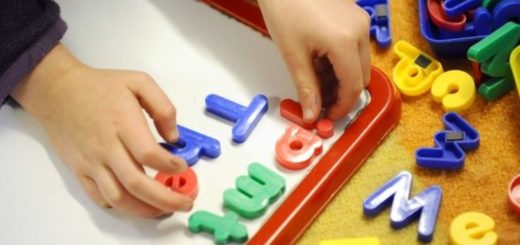Pre-prep assessment preparation
Pre-prep assessments in North London schools are amongst the most competitive and parents often enter their children for as many schools as possible in the hope that their little ones will be offered a place in any one of the top schools in the area. It is often, quite a stressful time for most parents depending on their view of the process and depending on which school they have their eye on. Furthermore, the schools themselves have to contend with numerous applications which send their ratios of children to places sky rocketing, even though at the end of the process they may not be left with the same numbers. Parents will even pay multiple deposits, multiple term fees etc in multiple schools to ensure that their child is left with several options. This makes the process as expensive as it is pressurised.
Being a parent who would want those same choices open to my child, I appreciate the position of these parents fully. However, there is also the alternate view that should be a valid consideration. i.e. that you pick the schools you like best and are honest with them about your child and what you want. As parents, you can only control the situation so much. It is after all up to the individual school to pick the right ‘kind’ of child that fits in with the ethos and aims of the school and from what I have gleaned, they are pretty good at doing just that. After all, the child and school need to be as good a fit as possible in order for the child to be happy and contented at the school and it is only a happy child who will truly achieve his/her true potential and thrive, no matter how ambitious the parent. So it may be an idea to just pick, say three schools that you, as a parent feel are best suited to your child and then concentrate on those three instead of (and this is not a fictitious number, I actually know someone who did this) applying to anything between 7-9 schools all across Hampstead and the surrounds.
Having gone through the process myself with my little one, I became almost obsessive in my research on which schools I should target and how I should prepare my child. I did not go down the tutor route as some mums are inclined to do simply because I am a stay at home mum and felt that I had the time to do the same games, puzzles and little exercises that are generally covered by the process. Also personally, I do not believe that such young children should be actually “tutored” in order to get into a school. But I do believe that it doesn’t hurt to play some games and engage your little one in educational activities at home, all of which cover what the assessments are looking for. It is crucial though your child is having fun whilst learning something. I am wholly against this idea of concentrated pushing in order to get into a particular school. One nursery teacher, in fact, mentioned to me that a little girl in her care had been tutored so much with a view to getting into South Hampstead Girls’ School that the child had come into the class in the morning, lay down in the book corner and said, “I need to sleep now, I am too tired.” When the teacher asked her to engage in a writing activity with the others, she went on to say, ” Oh, I’ve done this already, I need to sleep now”. This kind of situation to me, is beyond belief. That a parent would push a child to this extent at such a young age is almost abhorrent and frankly, I cannot believe that this is what any school would even want.
Many schools I visited were vehemently against the idea of tutoring a 3 year old and in fact some went so far as to say that such children could easily be spotted and would not necessarily be offered a place. However, to be fair, I should say though that I found that this was not necessarily the case at the schools. While they do stress that children should not be tutored, there are children who have benefitted and have been offered places over those who are not tutored but nevertheless very bright. It is probably at the end of the day a choice the parents have to make depending on what they believe is best for their child.
What most schools state (on paper) though, is that they just want sociable, friendly, confident kids who can be taught and any academic prowess displayed, while being a bonus, if gained out of natural curiosity, should really not be encouraged, if it is apparent that it is cultured, rather than gained, if that makes sense.
From what I have seen, the schools seem quite apt at detecting this, when they believe that it is relevant (which is probably based on how badly they want that particular child). This may mean then, that in some cases it is the parents who create these pressure pots for their children based on their ideals of what the schools want, more than the expectations of the schools themselves. This situation furthermore, seems to ascribe itself in higher proportions at the girls’ schools. There are ofcourse a couple of boys’ schools which have similar reputations but it does seem to be more in existence with the parents of girls.
Furthermore, you should know that most of these tests are set by Educational Psychologists and help teachers understand the temperament of the child and whether or not the child is displaying any signs of general or cognitive delays.
As a side note, if your child, is displaying any signs of learning difficulties or development delays, my advice would be to be open and honest with the schools. It is far better that they assess your child based on their knowledge of the child’s level and situation rather than write them off as being naughty or obstructive or destructive or fidgety or anything else for which there may be a perfectly reasonable explanation. Most schools don’t immediately write off such children anyway as most get over these little niggles as they grow older and more mature. Rule of thumb is though that as a parent, you accept your child may have a slight disadvantage as a result of some minor issue and that instead of sweeping it under the carpet, you address it, speak to the schools you are targeting and make sure that you are getting the right kind of school for your child. It does not pay to hide such issues and hope for the best because in the long run, you are not helping yourself, your child nor the school.
In an attempt, to help parents who prefer to guide their child through play, at home, this is a short list of what children facing an assessment should have an approximate idea of. The list has been compiled mainly through extensive research, interviews at various schools and interviews with various heads of both nurseries in the area and schools in the area. I hope this helps allay any fears mums may have and I hope it gives mums some guidance and direction as to how and what their children should have a general knowledge of. Please note that no school will test all of this and it is perfectly alright for your child not to know the answers to some questions that may be asked and to not be able to do some tasks. They are looking more for how your child reacts and answers rather than whether your child is a budding genius.
I am happy for other mums out there to share their knowledge on the subject and their views on what their children may or may not have experienced at assessments.
Please also refer to the section on worksheets which I have compiled from various sites which are fun to do at home and are also very helpful to children learning through play. It should be noted that I am NOT a teacher nor do I have any qualifications in that area, I am just a mum with a little one who was successful at the assessments we went to and I am just sharing my knowledge on the subject.
WRITTEN COMMUNICATION
- Recognising name
- Spelling name
- Writing name
- Identifying name from a list
- Letter recognition
- Reading short stories
- Spelling simple words
- Writing letters and numbers
VERBAL COMMUNICATION
- Know their address
- Know their name
- Know the country they are from if not originally from England
- Talk about their family
- Talk about something that is interesting
- Talk about holidays/weekends/activities/games/sports
- General conversation
- Sing nursery rhymes
- Rhyming
- Phonics
- Ability to listen to a short story (for around 10 mins) and answer questions on the story
- Retell a story told to him
- Tell a story relating to personal events
- Talk about pictures in a story book
- Discuss a story
- Listen to a story and put the pictures in the order of the story
BEHAVIOUR
- Join an existing class for 10 mins and take part
- Speech
- Concentration
- Independent toileting
- Ability to settle and socialise
- Whether they fidget or not
- Eagerness to learn
SOCIAL SKILLS
- Sharing
- Empathy and
- Taking turns
- Socialising
- Co-operating
- Free play
BASIC SKILLS
- Sense of direction – up, down, left, right, forwards, backwards
- Recognising shapes
- Tracing shapes
- Knowledge of different shapes
- Dot in circle
- Knowledge of colours
- Thread beads against the clock (and other activities involving motor skills)
- Naming baby animals
- Naming collections of things
- Expressing preferences and identifying favourite things etc
- Completing activities against the clock
- Pattern recognition
- Stacking blocks and building of a specific colour
- Sorting by size, colour etc
- Build a tower out of bricks
- Matching shapes and colours
- Putting things into sequences
- Counting games
- Counting objects
- Identify activities from a story or picture
- Spot the difference
- Odd one out
- Matching pairs
- Memory games – i.e. remembering what was in a picture when it was taken away
PHYSICAL SKILLS
- Kick a ball
- Walk on ropes
- Climb a frame
- Playing with sand
- Hitting a ball with a bat
- Involved play i.e. football
PUZZLES
- Jigsaw puzzles of at least 20 pieces
- Aim for 36 piece puzzles
ART
- Drawing shapes on request
- Draw a picture of the family and identify members
- Describe a picture
- Correct use of scissors
- Pencil grip
- Identify facial expressions
- Draw facial expressions
- Draw yourself
- Draw a picture of a tree, a pet, a sibling, a friend, yourself, a flower etc.
It should be borne in mind though that only a few of these activities will be tested at any given assessment and furthermore, that the assessments for boys are considerably simpler than those held for girls. Given the rate at which the two sexes mature, I gather that more importance is generally given to parent interviews at boys’ schools than at girls’ schools. With assessments for girls, there is more importance placed on knowledge and concentration whereas the boys are tested more on social skills and ability to listen and follow instructions.
I have posted a number of worksheets which you are welcome to print out and use at home if it helps. Please see the relevant posts under this topic.







